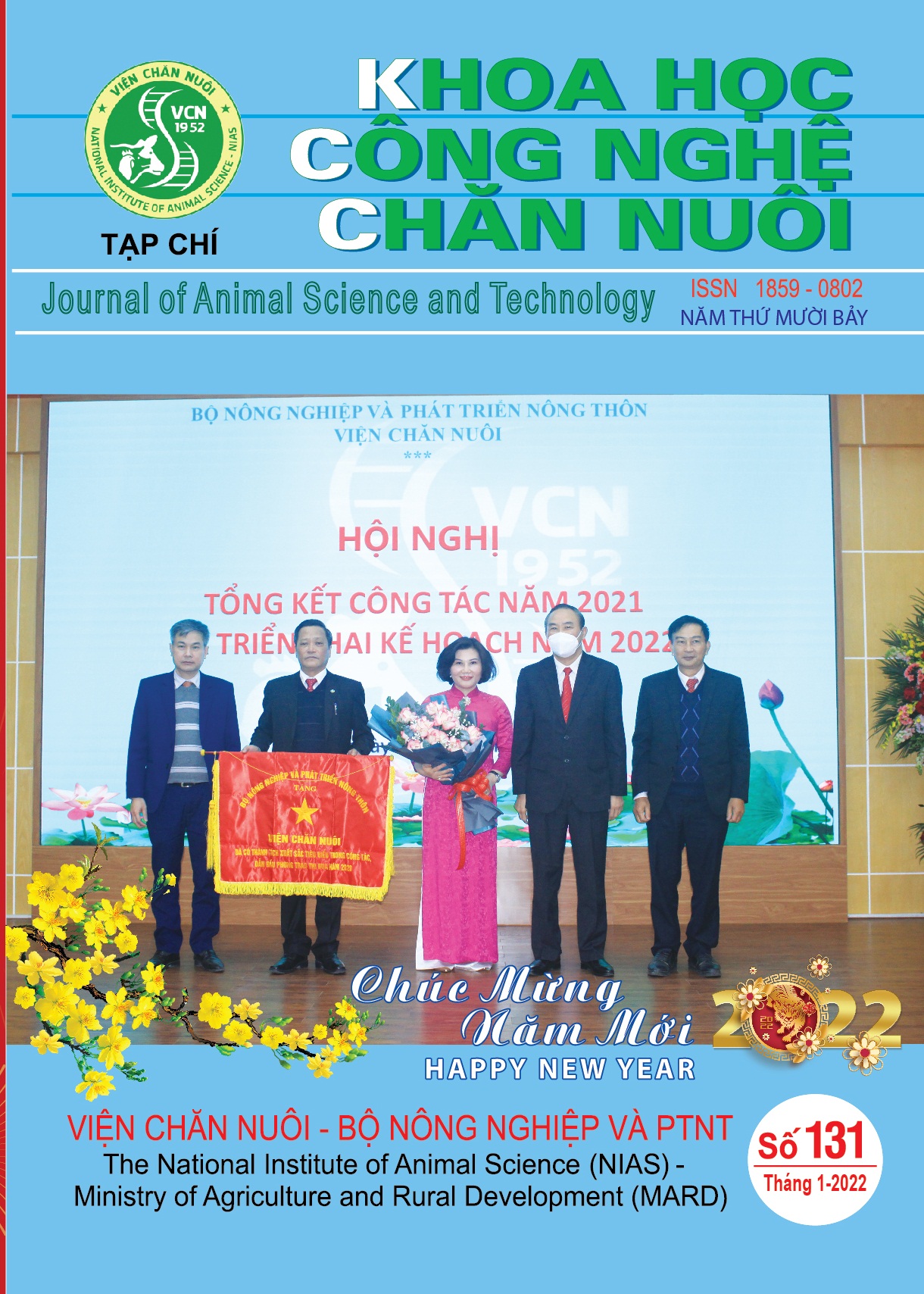Tình hình nhiễm giun sán ở bồ câu (Columba livia) nuôi tại tỉnh Trà Vinh và thuốc điều trị
Nhằm xác định tình hình nhiễm giun sán ở bồ câu (Columba livia) nuôi tại tỉnh Trà Vinh và thuốc điều trị, nghiên cứu được thực hiện từ 1/1/2021 đến 3/11/2021 tại các huyện Châu Thành, Tiểu Cần, Càng Long và thành phố Trà Vinh thuộc tỉnh Trà Vinh. Thí nghiệm xác định hiệu quả của thuốc được thực hiện trên 10 con chim bồ câu ở lô đối chứng, 10 con ở lô dùng thuốc Decto-pharm liều dùng 1g/1,5kg thể trọng và 10 con ở lô dùng thuốc Albendazole 10% với liều 10 mg/kg thể trọng. Kết quả xét nghiệm mẫu phân cho thấy: tỷ lệ nhiễm chung trứng giun sán trong phân bồ câu là 77,0%, trong đó, lớp giun tròn là 61,0% và lớp sán dây là 16,0%. Mùa mưa tỷ lệ nhiễm là 90,0% và mùa nắng là 64,0%. Tỷ lệ nhiễm giun sán ký sinh trên bồ câu tăng dần theo lứa tuổi: 1-30 ngày tuổi là 32,0%, 31-60 ngày tuổi là 80,0%, 61-170 ngày tuổi là 96,0% và >170 ngày tuổi là 100% bị nhiễm. Bốn trại khảo sát đều nhiễm: trại ở Châu Thành nhiễm 74,0%, ở Tiểu Cần nhiễm 76,0%, ở Càng Long nhiễm 80,0% và ở thành phố Trà Vinh nhiễm 78,0%. Tỷ lệ nhiễm ở con trống (75,0%) và con mái (79,0%) tương đương nhau. Kết quả mổ khám cho thấy: tỷ lệ nhiễm chung giun sán trên bồ câu là 86,0%, trong đó, lớp giun tròn chiếm 46,0% và lớp sán dây chiếm 40,0%. Mùa mưa tỷ lệ nhiễm là 93,0% và mùa nắng là 79,0%. Tỷ lệ nhiễm giun sán ký sinh trên bồ câu xác định bằng phương pháp mổ khám cũng tăng dần theo lứa tuổi: 1-30 ngày tuổi là 64,0%, 31-60 ngày tuổi là 84,0%, 61-170 ngày tuổi là 96,0% và >170 ngày tuổi là 100%. Mổ khám bồ câu của 4 trại khảo sát tỷ lệ nhiễm lần lượt: trại ở Châu Thành là 80,0%, ở Tiểu Cần là 90,0%, ở Càng Long là 88,0% và ở thành phố Trà Vinh là 86,0%. Tỷ lệ nhiễm ở con trống là 85,0% và con mái là 87,0%. Bồ câu nhiễm 7 loài giun sán, trong đó 3 loài giun tròn ký sinh ở ruột: Ascaridia columbae (46,0%), Heterakis gallinarium (36,5%) và Capillaria obsignata (33,5%); 1 loài giun tròn Oxyspiura mansoni (23,5%) ký sinh ở mắt, 3 loài sán dây ký sinh ở ruột: Raillietina tetragona (36,0%), Rallietina cesticilus (40,0%) và Hymenolepsis columbae (24,0%). Thuốc Decto-pharm liều 1g/1,5kg thể trọng và thuốc Albendazole 10% với liều 10 mg/kg thể trọng đều tẩy sạch được trứng giun tròn và trứng sán dây ký sinh trên bồ câu.

